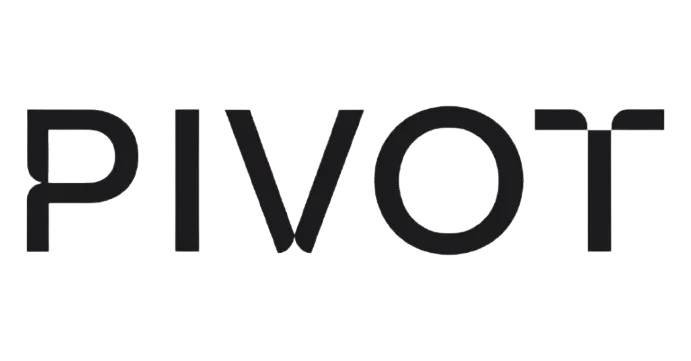Buying, selling, or inheriting property can be a complex process, and legal disputes often arise when rights, boundaries, or contracts are unclear. Property conflicts can escalate quickly, leading to costly legal battles or even loss of property rights. That’s where a property dispute attorney comes in—ensuring your real estate investments are protected and that you navigate legal challenges with confidence.
Whether you’re dealing with boundary disputes, landlord-tenant conflicts, breaches of contract, or co-ownership disagreements, having an expert attorney on your side can make the difference between a swift resolution and a prolonged legal battle.
What Is a Property Dispute Attorney & When Do You Need One?
Real estate disputes can be highly technical and require specialised legal expertise. A property dispute attorney is a legal professional who helps individuals and businesses resolve conflicts related to land, property rights, and real estate transactions.
What Does a Property Dispute Attorney Do?
A property dispute attorney provides legal representation and advice in real estate conflicts, ensuring your rights are protected under Australian property laws. Their role includes:
- Resolving property ownership conflicts – Assisting in cases of disputed ownership, inheritance conflicts, and co-ownership issues.
- Handling contract breaches – Enforcing agreements when one party fails to comply with a real estate contract.
- Managing landlord-tenant disputes – Addressing eviction issues, rent disputes, and lease violations.
- Boundary and zoning conflicts – Representing clients in disputes over land boundaries, easements, or zoning restrictions.
- Assisting in property damage claims – Helping property owners claim compensation for damages due to negligence or environmental factors.
How is a property dispute attorney different from a general real estate lawyer?
While both deal with property law, a real estate lawyer typically handles transactional work such as drafting contracts and conducting property settlements. In contrast, a property dispute attorney focuses on litigation and conflict resolution, ensuring that legal disputes are effectively settled through negotiation, mediation, or court proceedings.
When Should You Hire a Property Dispute Attorney?
Not all property disputes require immediate legal action, but there are key situations where hiring an attorney is essential:
- When facing an ownership dispute – If there’s a disagreement over property titles, inheritance rights, or co-ownership obligations.
- When dealing with contract breaches – If a party violates a property sale, lease, or joint venture agreement.
- If your property rights are at risk – When facing eviction, boundary encroachment, or unlawful property seizure.
- When a landlord-tenant conflict escalates – If rent disputes, lease terminations, or maintenance obligations lead to legal action.
- For claims related to property damage – If a neighbour, tenant, or contractor has caused damage to your property and refuses to compensate.
Minor disputes that may not require an attorney:
- Simple misunderstandings over rental agreements that can be resolved through discussion.
- Minor boundary disputes that can be clarified with land survey records.
- Disagreements over property maintenance responsibilities that are covered in a lease contract.
However, if the conflict remains unresolved or escalates, consulting a property dispute attorney can prevent financial losses and legal complications.
Common Types of Property Disputes in Australia
Property disputes can arise in various situations, from disagreements over boundaries and property damage to conflicts between landlords and tenants. Understanding the most common types of disputes can help property owners, renters, and investors navigate legal challenges effectively.

Boundary & Neighbour Disputes
One of the most frequent property conflicts in Australia involves boundary lines, fences, and shared property features. These disputes often arise when property owners disagree over land measurements, encroachments, or maintenance responsibilities.
Common issues include:
- Fences and walls – Disputes over height, placement, and cost-sharing for fence repairs.
- Encroachment issues – When a neighbour builds a structure (e.g., a shed or driveway) that extends onto your land.
- Access rights – Conflicts over easements or shared driveways.
When does the local council or government intervene?
In cases where a dispute violates local zoning laws, obstructs public pathways, or involves significant land use changes, local councils or land authorities may step in. Some disputes can be resolved through mediation, while others may require legal intervention.
Landlord-Tenant Conflicts & Lease Disputes
Rental agreements often lead to disagreements between landlords and tenants, particularly regarding lease terms, property maintenance, and eviction rights. Australian tenancy laws aim to protect both parties, but conflicts can still escalate.
Key areas of dispute include:
- Non-payment of rent – Tenants failing to pay rent on time or landlords imposing unlawful penalties.
- Maintenance and repairs – Disagreements over who is responsible for fixing damages or property wear and tear.
- Lease termination disputes – Cases where landlords attempt to evict tenants unfairly or tenants leave without proper notice.
When can a tenant be legally evicted?
A landlord can lawfully evict a tenant under the following circumstances:
- Non-payment of rent after repeated warnings.
- Breach of lease agreement, such as subletting without permission.
- Property damage beyond reasonable wear and tear.
- Illegal activity taking place on the premises.
Evictions must follow state-specific tenancy laws, and tenants generally have the right to dispute unfair notices through tribunals like VCAT (Victoria) or NCAT (New South Wales).
Property Damage Claims – Who’s Responsible?
When a property is damaged due to natural disasters, negligence, or third-party actions, determining who is responsible can be challenging. Property damage claims can involve owners, tenants, neighbours, or insurance companies.
Common property damage disputes:
- Structural damage – Disputes over liability when damage is caused by a neighbouring property (e.g., tree roots cracking foundations).
- Water leaks & flooding – Arguments over who should pay for repairs when leaks originate from another property.
- Tenant-caused damage – Situations where a landlord claims a tenant is responsible for significant property destruction.
🛑 Does insurance always cover property damage?
Not necessarily. Insurance companies may reject claims if the damage is due to negligence, poor maintenance, or an excluded event in the policy. Property owners may need to challenge insurers or seek legal representation if a valid claim is unfairly denied.
Commercial Real Estate Disputes
Property disputes aren’t limited to residential properties—they also occur in commercial real estate, particularly between landlords, tenants, and business partners.
Typical commercial property disputes:
- Lease agreement conflicts – Issues regarding rent increases, subleasing, or lease term violations.
- Breach of contract – Situations where one party fails to uphold a legally binding commercial property agreement.
- Disputes over maintenance costs – Arguments over who is responsible for repairs and ongoing property upkeep.
- Termination of long-term leases – Legal battles when landlords attempt to break or alter a lease agreement prematurely.
🛑 Why are commercial lease disputes complex?
Unlike residential tenancies, commercial lease agreements often have fewer tenant protections, making it essential for businesses to review contract terms carefully before signing. Seeking legal advice can help prevent costly disputes.
Property Ownership & Title Disputes
Ownership and title conflicts can be among the most complicated and high-stakes property disputes, as they often involve inheritance claims, missing documentation, or fraud.
Common title and ownership disputes:
- ✔ Disagreements over inherited property – Conflicts between family members over who has legal ownership.
- ✔ Co-ownership disputes – Cases where multiple owners disagree on property use, sales, or financial contributions.
- ✔ Title fraud – Situations where property titles are illegally transferred or forged.
- ✔ Errors in property records – Mistakes in land titles, zoning, or ownership transfers leading to legal complications.
🛑 How are property title disputes resolved?
Resolution methods include:
- Title searches and legal verification to confirm rightful ownership.
- Negotiation and mediation to settle disputes outside of court.
- Litigation in property law courts when no agreement can be reached.
If you suspect fraudulent activity or errors in your property title, consulting a property dispute attorney is essential to protect your rights.
How to Resolve a Property Dispute – Legal Options
Resolving a property dispute can be a complex process, but choosing the right legal strategy can save time, money, and stress. While some disputes can be settled through negotiation, others require formal legal intervention. Below are the most common legal pathways for resolving property conflicts in Australia.
Mediation & Alternative Dispute Resolution (ADR)
In many cases, property disputes don’t have to go to court. Mediation and Alternative Dispute Resolution (ADR) provide structured ways to negotiate settlements without lengthy legal battles.
When is mediation the best option?
- Neighbour disputes over fences, trees, or noise.
- Tenant-landlord disagreements about rent increases or repairs.
- Co-ownership disagreements where parties seek an amicable resolution.
- Commercial lease conflicts that could be resolved through compromise.
🛑 Why choose ADR over litigation?
✔ Cost-effective – Avoids expensive court fees.
✔ Faster resolutions – Mediation sessions can be arranged quickly.
✔ Confidentiality – Unlike court cases, ADR proceedings remain private.
✔ More control – Both parties have a say in the outcome.
How does arbitration differ from mediation?
- Mediation: A neutral third party guides discussions but does not impose a decision.
- Arbitration: A legally appointed arbitrator makes a binding decision, similar to a judge.
Many property disputes settle successfully through ADR, allowing parties to move forward without lengthy court proceedings.
Litigation – Taking Your Property Dispute to Court
Sometimes, court intervention is the only solution to resolve a property dispute, particularly when negotiations and mediation fail.
When is litigation necessary?
- Title and ownership disputes that require a legal ruling.
- Serious landlord-tenant conflicts involving illegal eviction or non-payment.
- Property damage claims where insurance companies deny liability.
- Boundary disputes that require land title corrections.
Legal process for property disputes in Australia
- Filing a claim – The plaintiff submits an official complaint in court.
- Pre-trial proceedings – Evidence is gathered, and preliminary hearings may occur.
- Court hearings & judgment – A judge reviews the case and makes a final decision.
- Appeals process (if applicable) – If one party disagrees with the ruling, they may seek an appeal.
How long does litigation take?
- Simple cases (e.g., minor lease disputes): 3–6 months
- Moderate disputes (e.g., property damage claims): 6 months – 1 year
- Complex cases (e.g., inheritance disputes, title fraud): 1–3 years
Litigation is often a last resort, but for high-value or complicated property conflicts, court intervention is sometimes unavoidable.
Government & Local Council Involvement in Property Disputes
In some cases, local councils and government agencies play a role in property disputes. This typically occurs when conflicts involve public land, zoning laws, or regulatory compliance.
When do government authorities get involved?
- Boundary disputes affecting public land – If a fence or structure encroaches on public property.
- Zoning & development conflicts – When property use violates council zoning laws.
- Environmental or heritage regulations – If disputes involve protected land or historic buildings.
- Illegal structures & unapproved modifications – When renovations breach building codes.
Urban planning & zoning laws in Australia
Each state and territory has specific land use regulations that affect property development and disputes. If a conflict involves zoning restrictions, it may require a formal application to amend land use classifications.
Property Dispute Attorney Fees – How Much Does It Cost?
One of the biggest concerns when hiring a property dispute attorney in Australia is the cost. Legal fees can vary based on the complexity of the case, the lawyer’s experience, and the billing structure. Below, we break down what you can expect to pay when hiring a property dispute lawyer.
Fixed Fees vs. Hourly Rates – What to Expect
Property dispute lawyers in Australia generally charge their clients in one of two ways:
1️⃣ Fixed Fees – A set price for specific legal services, often used for straightforward cases.
2️⃣ Hourly Rates – Clients pay based on the time the lawyer spends on their case.
🔹 When do lawyers charge fixed fees?
✔ Property contract reviews and legal consultations.
✔ Mediation services or pre-litigation settlements.
✔ Drafting legal agreements (e.g., co-ownership agreements).
🔹 When do lawyers charge hourly rates?
✔ Complex property disputes involving litigation.
✔ Disputes requiring extensive research or court appearances.
✔ Cases with unpredictable legal challenges.
What are the average hourly rates for property dispute lawyers in Australia?
- Junior lawyers: $250–$400 per hour
- Mid-level lawyers: $400–$600 per hour
- Senior lawyers & partners: $600–$1,000+ per hour
If you’re concerned about legal costs, consider negotiating a fixed fee arrangement for specific services.
Additional Costs & Hidden Fees in Property Disputes
Aside from lawyer fees, there are other costs involved in resolving a property dispute. These can include:
🔹 Court & Filing Fees
✔ Lodging a property dispute claim in court: $200–$1,500+
✔ Appeal application fees: $1,000–$3,000+
🔹 Mediation & Arbitration Costs
✔ Professional mediator or arbitrator: $1,000–$5,000+
✔ Expert reports (e.g., property valuation, land surveying): $500–$3,000+
🔹 Investigation & Evidence Gathering
✔ Land title searches: $50–$300
✔ Legal document preparation: $500–$2,000+
🔹 Unexpected Legal Expenses
✔ Barrister fees (if a case goes to trial): $5,000–$20,000+
✔ Appeal processes – Additional litigation costs if you contest a ruling.
📌 Tip: Always request a detailed cost breakdown from your lawyer before proceeding with your case.
Find the Best Property Dispute Attorney Near You
Finding the right property dispute lawyer can make a huge difference in the outcome of your case. Below are the key factors to consider when hiring legal representation.
What to Look for in a Property Dispute Attorney
A skilled property dispute lawyer should have:
- Experience in property law & litigation – Ensure they specialise in real estate disputes.
- A strong track record of success – Look for winning case histories and positive client reviews.
- Negotiation & litigation skills – Some cases require aggressive courtroom representation, while others need a diplomatic approach.
- Knowledge of state-specific property laws – Laws vary between NSW, VIC, QLD, WA, and other states.
📌 Questions to ask a potential lawyer:
❓ How many property dispute cases have you handled?
❓ What’s your success rate in resolving disputes?
❓ Do you offer fixed fee or hourly billing options?
How to Compare & Choose the Right Property Lawyer
When choosing a lawyer, consider whether you prefer:
🏢 A large law firm:
✔ More resources and expertise across multiple areas of law.
✔ Higher fees but greater reputation and experience.
✔ May assign junior lawyers to handle parts of your case.
👨⚖️ An independent property lawyer:
✔ More personalised service and direct contact with your attorney.
✔ Typically lower fees than large firms.
✔ May have limited availability for high-demand cases.
📌 Key considerations when comparing lawyers:
✔ Reputation & client reviews – Look for high ratings on Google Reviews, Trustpilot, or legal forums.
✔ Response time & communication – Ensure they reply promptly to your inquiries.
✔ Fee transparency – Avoid firms that don’t provide clear pricing structures.
Find Top-Rated Property Dispute Attorneys Online – Where to Start?
Looking for the best property dispute attorney near you? Online legal directories and expert recommendations can help you compare top-rated property lawyers based on experience, success rates, and client reviews.
Ramsden Lawyers
Ramsden Lawyers is a leading Australian law firm offering expert legal services in property disputes. With a strong presence in Queensland and New South Wales, they specialise in resolving complex property litigation, including boundary disputes, lease disagreements, and strata disputes. Their team of skilled attorneys provides strategic legal advice tailored to individual client needs, ensuring efficient and cost-effective resolutions. Ramsden Lawyers also excels in mediation and alternative dispute resolution, helping clients avoid lengthy court battles. Their client-centric approach and commitment to excellence make them a trusted choice for property dispute matters.
Strong focus on mediation to minimise legal costs
Personalised legal strategies for individuals and businesses
Offices in key locations across Queensland and New South Wales
Extensive experience in property litigation and dispute resolution

Pivot Property & Business Lawyers
Pivot Property & Business Lawyers specialises in property and commercial dispute resolution across Australia. They provide tailored legal solutions for a range of property conflicts, including title disputes, property development disagreements, and contractual breaches. Their team of seasoned attorneys combines legal expertise with commercial acumen, ensuring clients receive practical, outcome-driven advice. Pivot Lawyers are known for their proactive approach, resolving disputes efficiently while protecting clients’ interests. Whether through litigation or negotiation, they work to secure the best possible outcome for property owners and businesses.
Specialised in both property and business dispute resolution
Focus on cost-effective and timely dispute settlements
Expertise in property development and contractual conflicts
Strong advocacy in litigation and alternative dispute resolution

Best Hooper Lawyers
Best Hooper Lawyers is a premier law firm in Victoria with a strong reputation in property law and dispute resolution. They handle a broad spectrum of property-related conflicts, including planning and zoning disputes, land use disagreements, and compulsory acquisition matters. Their team provides clear, practical legal advice backed by decades of experience in the field. Best Hooper Lawyers is particularly recognised for their expertise in handling complex disputes involving government authorities and large-scale developments. They prioritise client-focused solutions, striving for favourable outcomes through negotiation and litigation.
Decades of experience in property and planning disputes
Expertise in handling conflicts involving government authorities
Strong track record in land acquisition and zoning matters
Client-focused approach with personalised legal strategies

Contested Wills & Probate Lawyers
Contested Wills & Probate Lawyers is a specialist firm dedicated to resolving disputes related to wills, estates, and probate matters across Australia. They provide expert legal support in cases involving contested wills, inheritance claims, and disputes over estate assets, including property. Their experienced legal team helps beneficiaries, executors, and family members navigate complex probate issues with a strategic and compassionate approach. With a strong focus on mediation and alternative dispute resolution, they strive to achieve fair outcomes while minimising court involvement. Their expertise ensures clients receive the best possible representation in emotionally charged estate disputes.
Specialised in contested wills, probate, and estate disputes
Expertise in resolving inheritance and property-related claims
Strong focus on mediation to avoid costly court battles
Compassionate and strategic legal support for families and beneficiaries

FAQs – Your Top Questions About Property Dispute Attorneys
What is the difference between a property dispute attorney and a real estate lawyer?
A property dispute attorney specialises in legal conflicts regarding property ownership, boundaries, and tenancy disputes. A real estate lawyer focuses on transactions, contracts, and legal documentation related to property sales and purchases.
How much does a property dispute attorney charge in Australia?
Fees vary depending on the complexity of the case. Some lawyers charge hourly rates ranging from $250 to $600, while others offer fixed fees for specific services. Additional costs may include court fees and expert reports.
Can a property dispute be resolved without going to court?
Yes, many disputes are resolved through mediation or Alternative Dispute Resolution (ADR), which can be faster and more cost-effective than litigation. However, complex cases may require court intervention.
What are my rights as a property owner in a boundary dispute?
Property owners have legal rights to protect their land boundaries. If a dispute arises, legal documents such as property titles and land surveys can help clarify ownership. Consulting a property dispute attorney can provide further guidance.
Do I need a lawyer for a landlord-tenant dispute?
While minor disputes may be settled through direct communication, legal assistance is beneficial for eviction cases, lease breaches, or unfair rental agreements. A lawyer can ensure your rights are protected under Australian tenancy laws.
Protect Your Property Rights – Hire a Property Dispute Attorney Today
Whether you’re dealing with a boundary conflict, landlord-tenant dispute, or property damage claim, having the right legal support can protect your investment and rights.

Why Legal Protection is Essential for Property Owners & Tenants
- Avoid costly mistakes – A lawyer ensures you follow the right legal process.
- Resolve disputes faster – Mediation or court action with expert guidance.
- Secure your rights – Prevent unfair claims or contract violations.
- Maximise compensation – If you’ve suffered property damage or financial losses.
Get a Free Consultation with a Property Dispute Attorney
- Many property lawyers offer free initial consultations.
- Get personalised legal advice for your dispute.
- Find out how much compensation or legal protection you’re entitled to.
📞 Contact a trusted property dispute lawyer today!
Secure Your Investment & Avoid Costly Legal Battles
Don’t wait until your property dispute escalates. Act now to protect your rights, resolve conflicts, and ensure your investment is legally secure.
👉 Find the best property dispute attorney near you today!
Explore More Legal Topics
📌 Wrongful Death Attorneys
📌 Car Accident Attorneys
📌 Truck Accident Attorneys
📌 Tax Attorneys
📌 Employment Agreement Attorney
📌 Types of Criminal Lawyers
📌 Corporate Attorneys

